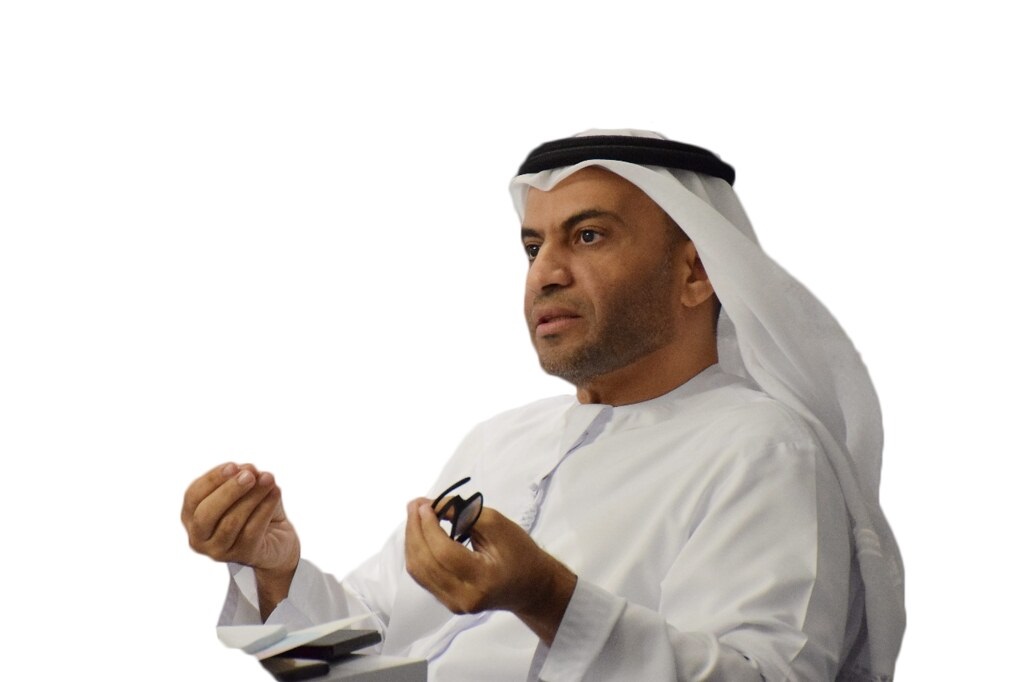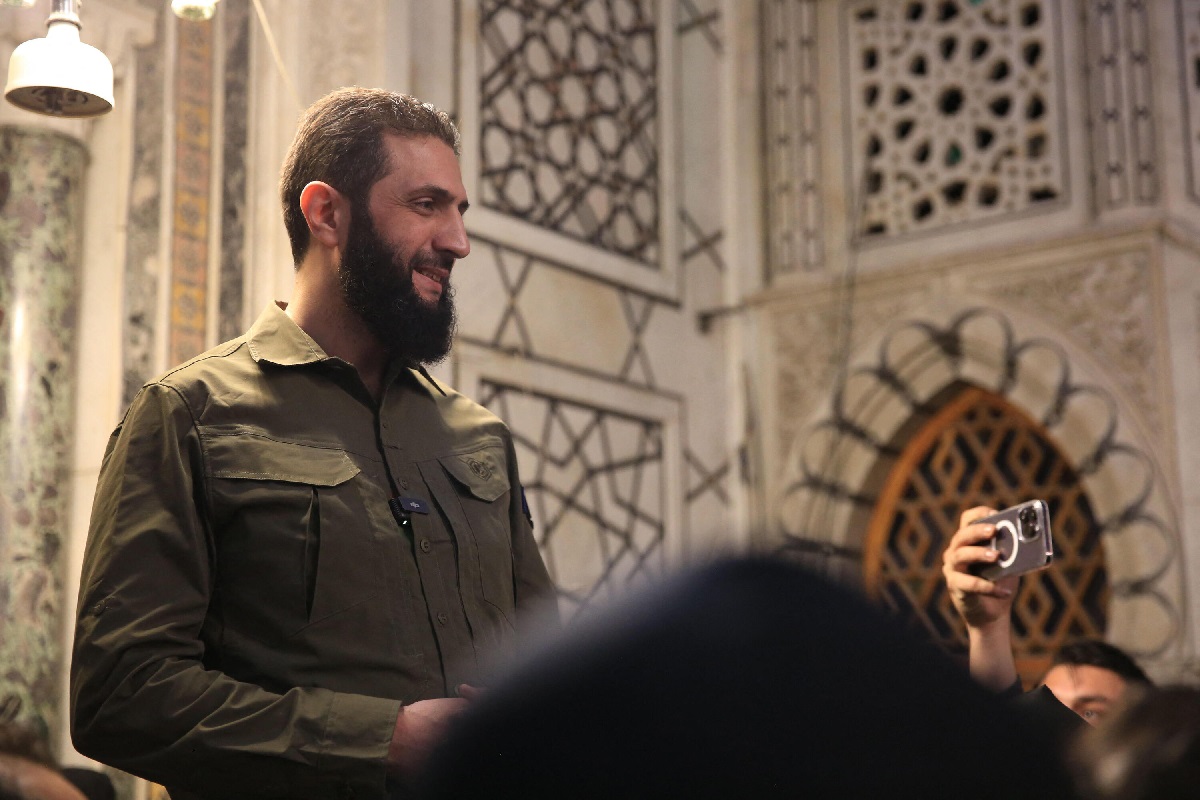Watan–The Emirati writer and political analyst “Salem Al-Ketbi,” a former candidate for the Federal National Council, stirred controversy with an opinion article he published on an Israeli website regarding the new Syrian administration and its leadership under Ahmad al-Sharaa.
The article, which discussed the possibility of the assassination of the leader of the Syrian administration, was titled “Will Ahmad al-Sharaa be assassinated?” and was published on the website “Arutz Sheva,” the mouthpiece of the religious Zionist movement in Israel.
Al-Ketbi, a supporter of normalization and aligned with the UAE government, appeared in his article to be subtly inciting the assassination of Ahmad al-Sharaa, under the guise of discussing a plausible possibility.
He stated that it was not out of wishful thinking or controversy that he was discussing the possibility of Ahmad al-Sharaa (Abu Muhammad al-Jolani), the head of the new Syrian administration, being assassinated, but rather it stemmed from his bewilderment at what al-Sharaa had said in a recent interview.
The Emirati writer cited part of al-Sharaa’s conversation with the Saudi “Al Arabiya” TV host, Tarek Barakah, when Barakah asked him why adequate safety measures were not in place around him, and why he was meeting journalists without the usual security protocols for high-ranking figures.
In response, al-Sharaa had said, “Don’t worry, security is our game.”
Commenting on this, Al-Ketbi wrote that reading al-Sharaa’s response brings to mind many recent events, referring to assassinations of leaders from Hamas and Hezbollah, suggesting that al-Sharaa might face a similar scenario.
He said: “Those who possess superior technology and intelligence capabilities are the ones who hold the winning hand. Israel has surpassed the intelligence capabilities of Iran and Hezbollah, enabling it to assassinate high-ranking Hezbollah leaders and even strike Ismail Haniyeh, despite the protection of the Iranian Revolutionary Guard.”

Al-Ketbi continued in his article on “Arutz Sheva,” stating that al-Sharaa had appeared several times in public since entering the Syrian capital, Damascus, and it could be that these appearances were intended to send a message about security control and to warn enemies against attempting to target him. However, he noted that this did not eliminate the danger, especially since areas and elements were still beyond control. Moreover, he stated that absolute security does not exist in reality.
He claimed that despite al-Sharaa‘s forces’ experience in asymmetric warfare, they lacked the technical and intelligence capabilities necessary for comprehensive protection.
In what seemed like an indirect incitement against the new Syrian administration and its leader, Al-Ketbi suggested that many intelligence agencies in the region could eliminate Ahmad al-Sharaa with their military technological capabilities.
He added: “Moreover, opposition militias such as the Houthis and Hezbollah could achieve this if they wished, using their advanced drones and guided missiles. So one must question what al-Sharaa relies on when he boasts of his organization’s ability to provide protection.”
Al-Ketbi described Ahmad al-Sharaa as a “militia leader” and pointed out that the al-Nusra Front (later known as Hayat Tahrir al-Sham) had gained significant battlefield experience during its 12-year war against the Assad regime. However, he argued that protecting a head of state requires a completely different security approach than protecting a militia leader.
He suggested that the new administration’s self-confidence was rooted in a network of mutual interests and understandings related to al-Sharaa’s position.
Al-Ketbi added: “It seems that multiple parties benefit from his continued existence. The strategic interests of key players, wherever they may be, shape the selection of political figures. These same interests often determine not just who rises to power, but also when—and perhaps how—they leave the stage.”
In his attempt to demonize the new Syrian administration, Al-Ketbi wrote that what al-Sharaa and his new administration were doing was “a game far from being secure. Wherever there are arrangements, opposition emerges. This opposition may come from states, organizations, or even individual leaders—whether they are competitors, potential ones, or newcomers.”
The Emirati writer concluded his article with mockery of Ahmad al-Sharaa, stating: “Security is our game” seems just a clever response to an unexpected question. At that moment, al-Sharaa could only rely on his background and experience as the leader of Hayat Tahrir al-Sham, not as the head of the new Syrian administration.
It is worth noting that the UAE has engaged partially and cautiously with the new Syrian administration. The stance of “the devil of the Arabs” in Abu Dhabi was clearly seen during the reception of the Syrian delegation led by Asaad al-Shibani by Abdullah bin Zayed, which sparked controversy and angered Syrians, with many calling it an inappropriate reception intended to insult them.
Mohammed bin Zayed was previously the popular supporter of Bashar al-Assad and his regime before its downfall, and he was the one who advocated for reintroducing Assad into the Arab fold, even pressuring Riyadh to do so. Bin Zayed was the first leader to receive Assad after years of Arab boycott.
The Emirati president fears the rise of revolutionaries to power in Syria and the fall of the repressive regime, as Islamic movements represent his “biggest nightmare,” for which he has spent billions and funded all counter-revolutions to curb these movements.
However, it seems that all of “the devil of the Arabs'” efforts have failed, following the Al-Aqsa Flood that emerged from Gaza, which dealt a fatal blow to all his plans that he thought had succeeded and would bear fruit after years of effort, but the events of October 7, 2023, marked a new chapter that seems to be the worst in bin Zayed’s remaining life.
-
-
-
-
-
-
